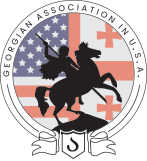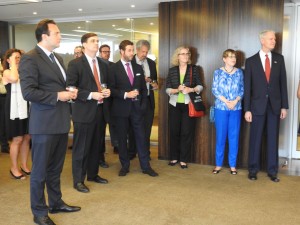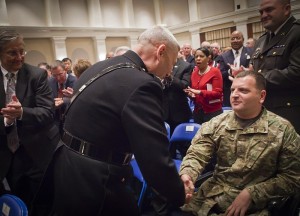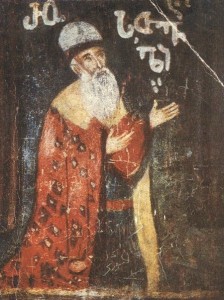By Nino Japaridze, originally published at Edison Research
In three weeks, voters will have an opportunity to elect the Republic of Georgia’s next President. Edison Research took a detailed look at the voter’s pre-election sentiment by surveying 3,000 eligible voters nationwide in September 2018. The survey was commissioned by Georgia’s leading independent national broadcaster, Rustavi 2.
There is no shortage of Presidential candidates to choose from: The names of twenty five registered candidates will appear on the ballot on October 28th. There were twenty-one additional presidential hopefuls whose registration was denied by Georgia’s Central Electoral Commission.
Several clear themes emerged:
The vast majority of interviewed voters tell us they plan to perform their civic duty and turn out to vote: We discovered 64 percent of eligible voters “definitely” plan to vote during the upcoming Presidential election, with 23 percent who think they will “probably vote,” 9 percent report being less likely to vote, and 4 percent did not answer the question. Should this be surprising? If we look at the long-term trends, voter turnout during Georgia’s Presidential elections has significantly declined over time, with only 46.6 percent of registered voters voting during Georgia’s 2013 Presidential election. Some analysts predict this trend will continue and expect a low turn-out this fall, in part because the weakened institution of the Presidency — a result of Constitutional amendments passed by the Parliament of Georgia on September 26, 2017. Edison’s poll, however, reveals 41 percent of eligible voters are unaware these amendments also annul Georgian voters’ ability to directly elect their president. When we asked them about this, we discovered 40 percent of eligible voters “completely disapprove” and 31 percent “somewhat disapprove” of this change, which will take effect in six years.
Only three Presidential hopefuls lead: When asked “if the election was held tomorrow, which candidate would you vote for,” 22 percent of eligible voters expressed support for Grigol Vashadze (a candidate from the Power is in Unity alliance of opposition parties), 18 percent for David Bakradze (a candidate from the European Georgia Party, which broke away from the United National Movement), and 15 percent for Salome Zurabishvili (an independent candidate backed by Georgia’s ruling party– Georgia Dream). Nearly seven out of ten supporters of these top-ranking candidates told us they were certain of their choice.
Shalva Natelashvili (a candidate from the Labor Party) and David Usupashvili (a candidate from the Independent Democrats Party) garnered 8 and 3 percent support, respectively. Other candidates had less than 2 percentage points of support. A quarter of the interviewed eligible voters told us they are undecided or they refused to answer this question.
Salome Zurabishvili has a strong negative image among eligible voters. When asked which Presidential candidate they would never consider voting for, 41 percent named Salome Zurabishvili, 29 percent named Zurab Japaridze and 16 percent named Shalva Natelashvili, while 13 percent of the surveyed respondents would never vote for Grigol Vashadze and 11 percent said they would never vote for David Bakradze and David Usupashvili, respectively.
A run-off election is likely. A run-off election between the top two candidates will occur if no candidate reaches 50% of the vote. With three candidates garnering significant support in our survey, and several others bringing in smaller numbers, a run-off election seems likely to occur. And voters in our poll agree, with 44 percent of surveyed voters expecting a run-off election, while 22 percent don’t expect this outcome and 32 percent “don’t know” or “refuse to answer” the question.
If all remains equal, the government party endorsed candidate Zurabishvili will likely be defeated by an opposition candidate during a run-off. Edison’s pre-election survey shows that if during a run-off election Grigol Vashadze and Salome Zurabishvili are on the ballot, 50 percent would vote for Vashadze, while 24 percent would vote for Zurabishvili, with 26 percent undecided or refusing to answer this question. Similarly, Zurabishvili appears to trail David Bakradze during a run-off election scenario: 53 percent would vote for Bakradze and 23 percent would vote for Zurabishvili during the run-off election, with 24 percent being undecided or refusing to answer the question.
Georgian voters are deeply dissatisfied with Georgia’s developments, creating an environment favorable for an opposition candidate to take the helm of Georgia’s Presidency this fall. 79 percent of the surveyed respondents feel the Republic of Georgia is going in the wrong direction. Six out of 10 respondents told us they “strongly disagree” with the legislative initiative led by Georgia Dream to legalize production of marijuana for export, while 26 percent “somewhat disagreed.” Immediately after the Edison poll was released, Salome Zurabishvili stated that, if elected President, the dialogue with Georgia’s population on this issue will continue. She also invited two leading opposition candidates to participate in pre-election debates. Georgian voters are known to radically shift their political preferences in a short time-span. With 24 days left before Georgia’s Presidential election, presidential candidates still have some time to earn the voters’ trust.
Click here to view Rustavi 2’s coverage of Edison’s findings





















 legend says that the poet abandoned public life, became a monk, and spent the rest of his days in one of the Georgian monasteries in Jerusalem (formerly the Georgian Monastery of the Holy Cross, the church now belongs to the Greek Orthodox Patriarchate of Jerusalem). It was there that his tomb was discovered centuries later, along with a fresco and a simple inscription “Shotha Rustaveli”. His Wikipedia Biography notes that the fresco and accompanying inscription in Georgian were defaced in 2004. But the fresco was subsequently restored.
legend says that the poet abandoned public life, became a monk, and spent the rest of his days in one of the Georgian monasteries in Jerusalem (formerly the Georgian Monastery of the Holy Cross, the church now belongs to the Greek Orthodox Patriarchate of Jerusalem). It was there that his tomb was discovered centuries later, along with a fresco and a simple inscription “Shotha Rustaveli”. His Wikipedia Biography notes that the fresco and accompanying inscription in Georgian were defaced in 2004. But the fresco was subsequently restored.